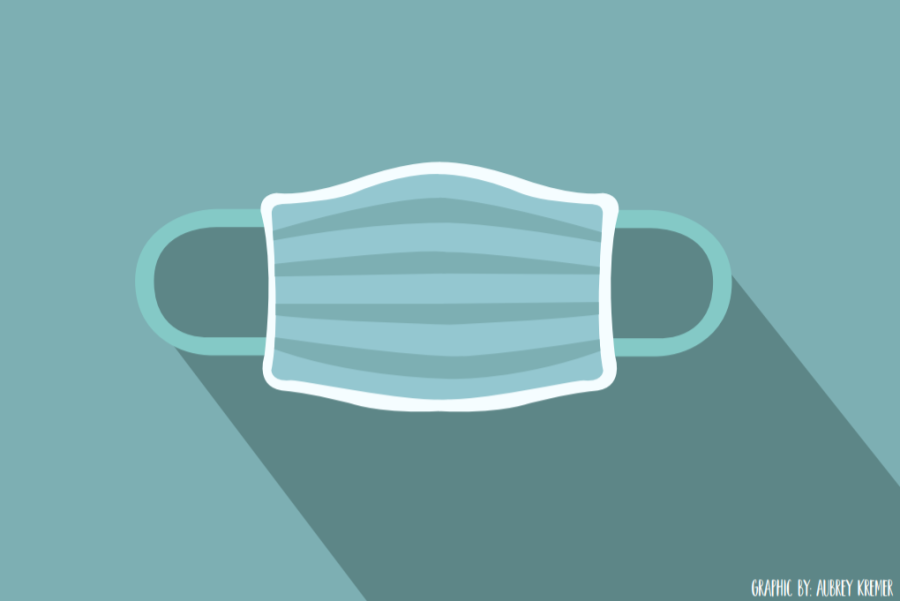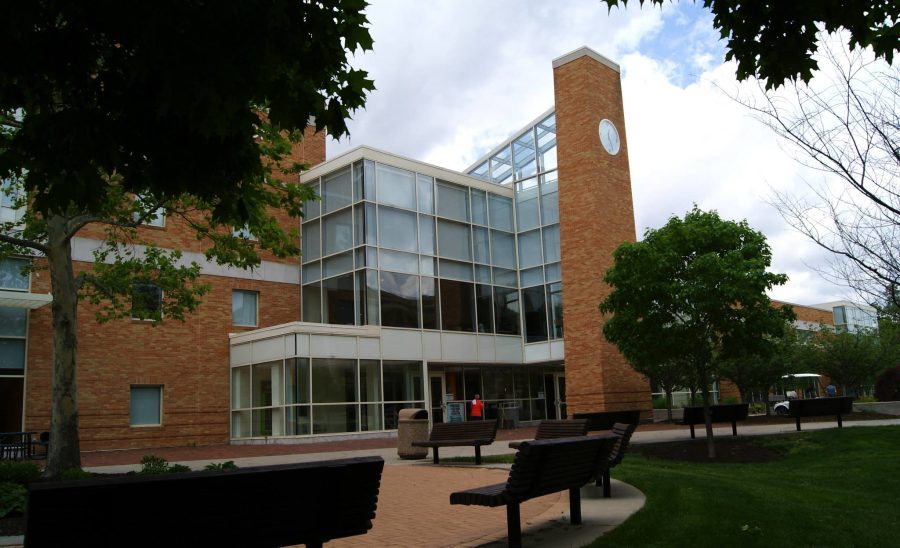As people turn on the news, look at a magazine or even scroll through social media, all anyone seems to talk about is the C-word. Yes, COVID-19. But there have been some positive outcomes to life under the mask.
In the spirit of the holiday season, here’s a look at how four people on campus reflect on some of the positives in the midst of these challenging times.
Ashleigh Mendenhall | Sophomore, Tourism Hospitality and Event Management
Mendenhall said she struggled with mental health prior to COVID-19, but found her mental health improving during lockdown.
“I’ve come to the realization that I need to take better care of my mental health,” Mendenhall said. “With being locked up and not being around people and everything it’s definitely made me realize I need to find love in myself. I can’t find that in other people if there’s no people around me.”
When gyms closed their doors, some students turned to working out at home.
Social media began booming with the increased popularity of at-home workouts, taking “quarantine walks” and challenging friends to do social media workout challenges.
Mendenhall participated in one of the push-up challenges with her dad, where you post your push-ups every day while challenging friends. She also said that she hopped on the trend with high-intensity interval training workouts found on YouTube.
Working-out can increase sleep quality, memory retention, thinking abilities, energy levels and resilience, according to Help Guide.
Mendenhall, who has struggled with insomnia her whole life, said she slept better as she began working out more.
“I would always work out at night because it would tire me out, and then I would be more likely to go to sleep at a more reasonable time.”
She added working out more helped her mental health as well because she was more confident and generally felt better.
“I feel like now that everything is online, I have more time to take to myself, like last year I had no time because I would go to school and work, that’s all I would do.”
She also said she has enjoyed being able to wake up 5 minutes before her classes and staying in bed during the lesson.
Being cooped up inside with family can be challenging, but Mendenhall said her relationship with her family improved. During lockdown she said she became closer with her brother because they would stay up late watching TV together.
Alyssa Lydon | Freshman, Fashion Merchandising
Freshman Alyssa Lydon said the pandemic has improved her mental health because it allowed her to evaluate the people in her life, and even her personal habits.
“It definitely taught me how to relax,” she said. “Once I got a little more used to it, I realized how much I needed it. I never had this time to focus on myself and just relax in my whole life.”
Now that life has picked up again, she takes time for herself after a busy day, which is something she never would have done before.
Lydon has a few in-person classes.
“I have my specific days that I have to go to campus and then other days I can just stay home, do my classes, focus on homework and relax a little bit more,” she said. “I can’t imagine having every one of these classes in person. I think I would be so overwhelmed and busy.”
Lydon found support from her friends last spring. She said her friend group began texting more in their group messages, checking in on each other more often.
She also found herself enjoying the much-needed quality time with her family.
“We’re all normally pretty busy people, so with all of us being home we were relying on each other a lot and I felt like we definitely got a lot closer,” she said.
During the shut-down, Lydon began experimenting with different ways to work out.
She said that she has never been a runner, but in quarantine found herself getting into running as a way to escape being trapped inside.
Nathan Hensley | Assistant Professor, School of Earth, Environment and Society
Students weren’t the only ones finding the positives in the lockdown.
“There’s been an opportunity to slow down to be connected to one’s place, one’s thoughts and to think about how a person is to live their life,” Hensley said.
The daily hustle of a BGSU professor has changed too.
Hensley said it is nice to not have a ton of in-person classes, but he mentioned that the preparation for online classes takes more time.
“Less in person classes creates more opportunity to be centered in your day,” he said.
He also said his meetings have been more efficient and feel more flexible because they are virtual.
Hensley and his wife began getting creative with reaching out to friends. They began connecting with friends who live far away with virtual game nights.
“By reconnecting we’ve been able to see how people are doing and check in with them in ways that we wouldn’t have previously,” he said.
And being quarantined with family created better bonds.
“We were able to spend more time together as a family and also be more intentional to not be on devices and doing screen time, but having more face to face time as a family,” he said.
He saw a similar trend with his friends and their families. He even sees his neighbors and their families outside doing more activities, raking leaves, going hiking and being more creative.
Although COVID-19 is not what anyone wanted, it may have been the cultural reset that a lot of people needed.
Through his research studies with mindfulness, Hensley said it is important to see these positives during this time.
“It’s important to find solace even when there’s really difficult times and to be able to convert those challenging moments into joy and to be reflective. To be able to accept what the difficulties are and recognize that that’s part of the life journey.”
He said COVID-19 has been a time for everyone to be reflective of their lives and “create a vision for what we would want in our lives moving forward.”
“That can help show you what you want to emphasize and what you want to de-emphasize,” he said.
Brandi Barhite | Director of Enrollment Communications
Brandi Barhite, director of enrollment communications at BGSU, said COVID brought change to her job and personal life.
“It forced us to make a change and I think the change is good,” she said.
As for the workplace, Barhite has enjoyed the flexibility and efficiency of online meetings.
“Our virtual meetings are more frequent and easier to attend because if I had a doctor’s appointment and needed to pop on and off, it’s no problem at all. I think there’s more flexibility in the ability to meet with people now,” she said. “So, it’s made my team stronger, and it’s made our relationships stronger at BGSU because it’s so easy to be connected.”
Barhite said admissions has been forced to develop more virtual ways to reach students during COVID-19, like creating videos of campus for future students to view.
“Of course we want to get back to having large in person visits, but I think we’ll always supplement with these virtual opportunities now, which are especially helpful for out of state students, who might not have the opportunity, the time or the means to always travel back and forth to BGSU.”
She also mentioned that she likes the flexibility with sick days and how she is still able to contribute in meetings from home.
“There’s something about being in your (pajamas), wearing your slippers, making yourself chicken noodle soup from home but still going through the work day. I think that’s a huge benefit. It helps you feel better,” she said.
Barhite has had her own way of keeping in contact with people during lockdown. She started sending letters and gifts to cousins, co-workers or even old friends.
“During the pandemic I felt an urge to send people cards in the mail and or gifts to their porches to brighten their day,” she said. “I would make a goal to reach five or six people a day. The reactions to people receiving those cards and gifts were priceless.”
Barhite said the time she was able to spend with her family gave her a reality check.
“The pandemic has given me the opportunity to do that. I don’t know if I knew I needed to do it, but once I started doing it, I was like ‘wow, we were not spending time together at all,’” she said.
She joked, “I think that I spent more time with my husband than I spent with him in the 13 years that we’ve been married.”
COVID-19 has helped Barhite pursue her love for walking and even challenge her colleagues.
“The office of admissions is on our third walking challenge where we have divided up into teams and track our steps,” she said. “I definitely didn’t realize how much more I could be walking until the pandemic started. So, I bought myself a Fitbit and started tracking my steps.”




